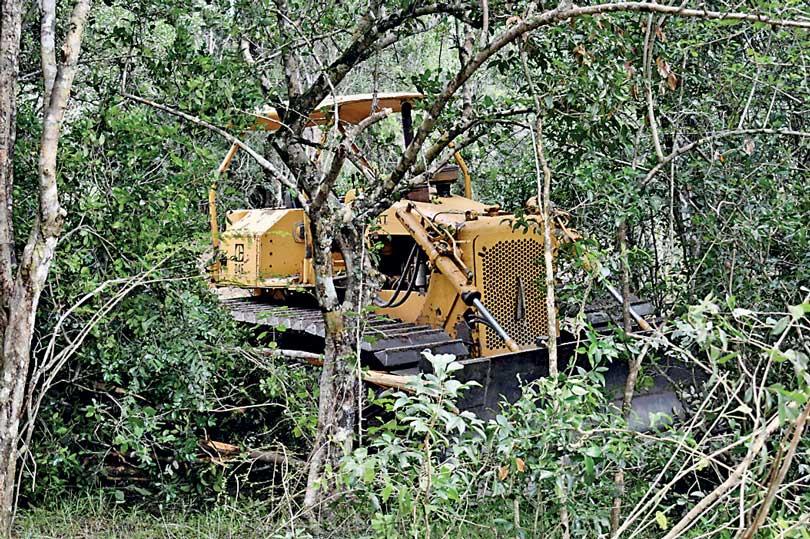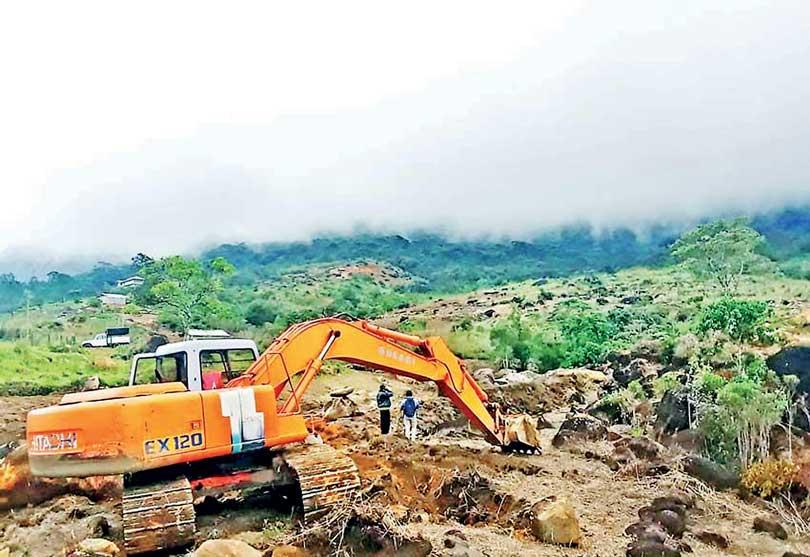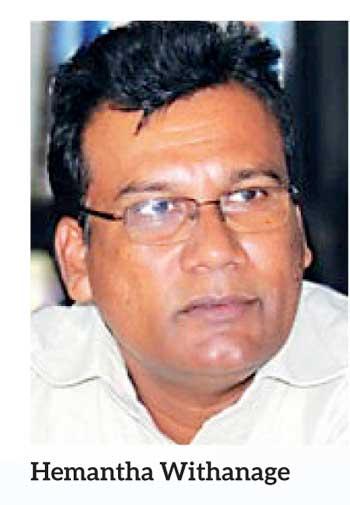Reply To:
Name - Reply Comment

Forest destruction happening in Thrikonamadu

The picture shows the clearing of a section of the Manikkawatte-Bowitiyatenna elephant corridor in the Sinharaja Forest Reserve to build hotels
The figures on Sri Lanka’s forestry are not real. For example, there is no 29.6% forest cover in Sri Lanka
Forest is about land, which is now being used as political bribery
Reforestation in the country is not adequate
 Forests, the lifeblood for the maintenance of ecological balance and human existence, move down the priority list when money does the talking. The triple bottom line: People, Planet and Prosperity could be a slogan for profit-driven entities hell-bent on maximising return on investments.
Forests, the lifeblood for the maintenance of ecological balance and human existence, move down the priority list when money does the talking. The triple bottom line: People, Planet and Prosperity could be a slogan for profit-driven entities hell-bent on maximising return on investments.
However, this year’s International Day of Forests which falls today (March 21) draws the world’s attention towards being smarter with technology to conserve the fast dwindling global forest cover.
 The theme for this year’s World Forest Day is ‘Forests and Innovation: New Solutions for a Better World’.
The theme for this year’s World Forest Day is ‘Forests and Innovation: New Solutions for a Better World’.
The Daily Mirror spoke to Hemantha Withanage, an environmentalist, Chair, of Friends of Earth International and Co-Founder, of Centre for Environmental Justice (CEJ) for his views on the current status of Sri Lanka’s forest cover and the adoption of new technology for forest monitoring and early warning systems to curb deforestation.
Excerpts of the interview:
Q: Innovation and technology have revolutionised forest monitoring, enabling countries to track and report on their forests more effectively. How far has Sri Lanka adopted innovations and technology to preserve its forest cover?
New technology is not used much in Sri Lanka despite having access to modern technology. Except for GIS mapping, which was used to declare new critical forest areas soon after the end of the war, Sri Lanka does not even use satellite maps to my knowledge. The UN-REDD readiness programme developed a system together with the Survey Department to share that information with government agencies and the public, but it was never implemented due to some resistance. The Global Forest Watch provides critical information including fire alerts, forest loss, etc and when Dr. Thilak Premakantha was in the Forest Department he sent such information to the field to check the actual issue, but I was told that the system is not in operation now.
Q:Ecosystem restoration, including reforestation efforts, can significantly contribute to climate mitigation and enhance food security. Is Sri Lanka doing enough on ecosystem restoration, including reforestation to stop the fast declining forest cover in the country?
Reforestation in the country is not adequate. Reforestation takes place mostly in mangrove areas. But large-scale destruction takes place in other forest areas. They continue with industrial plantations. I don’t see any restoration in the critical ecosystems.
Q:The ‘Reforestation and Forest Cover Act’ is aimed at increasing the forest cover to 32% by 2030. Are the policymakers serious about it and has anything tangible taken place to boost the forest cover in the country?
No. In fact, they do the reverse. There is a lot of forest destruction taking place in Kabiliththa, Sengamuwa (pothuvil), Thrikonamadu, Pollebadda, and Sinharaja. The CEJ was able to reverse the damage done by withdrawing the 5/2001 forest circular and bringing a new circular in 1/2020, which allows the Forest Department to hand over other state forest to Divisional Secretaries for development. This was through one of our court cases.
Q:There isn’t currently a comprehensive database on Sri Lanka’s forest cover. What is your take on it?
Firstly, there is no reliable official database on forest cover in Sri Lanka. There is some information gathered by reading satellite images, not through a dedicated study. Secondly, forest is about land, which is now being used as political bribery. Political leaders don’t want to share such information with the public. Thirdly the figures on Sri Lanka’s forestry are not real. For example, there is no 29.6% forest cover in Sri Lanka. They include industrial forest plantations and even rubber. If there are actual figures, people will see how the authorities have failed to protect the forest in Sri Lanka.